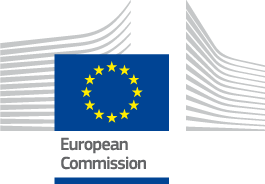
Support study for the development of the roadmap for the reduction of whole life carbon of buildings
Study background
In 2020, the 2030 Climate Target Plan presented an EU-wide, economy-wide greenhouse gas emissions reduction target of at least 55% by 2030 compared to 1990.
The Renovation Wave Communication (2020) pointed out that it is essential to make buildings more energy-efficient, less carbon-intensive and more sustainable in order to achieve this target as they account for around 40% of energy consumption and 36% of CO2 emissions in the EU.
This requires a significant reduction of the carbon emissions throughout the whole life cycle of buildings, encompassing both operational and embodied carbon.
There is, however, limited data on and awareness of the importance of embodied carbon. While several EU Member States have gathered data and set out national roadmaps and strategies, an EU-wide roadmap for reducing whole life cycle carbon emissions in buildings has not been developed yet.
To address this, the European Commission initiated a study aimed at supporting the development of an EU-wide whole life carbon roadmap, outlining how all building-related emissions can be mitigated by 2050.
The study was conducted by Ramboll Management Consulting, together with Buildings Performance Institute Europe and KU Leuven and it ran until the end of 2023.
Study objective
The study :
- Establishes a baseline for embodied carbon emissions of buildings across European regions
- Sets out how embodied carbon of European buildings can be expected to evolve by 2050
- Sets out the trajectory towards climate objectives for operational carbon in various scenarios
- Identifies and assesses the impact of whole life carbon emissions reduction solutions.
The study was based on collaboration with key building and construction sector stakeholders.
This was to ensure that the study output would benefit from the wealth of expertise and knowledge available across the EU.
Findings
Technical study report
Read about our findings in the technical study report that has been released in support of the EU Commissions public consultation.
Expertise
About the Expert working group
Various experts and specialists were part of the expert working group that supported us and the EU Commission in the road mapping process.
Kick-off webinar
Learn more about the study
If you missed the kick-off webinar, you can watch it here.
You can also download the webinar presentation here.
Let's get in touch
Let's get in touch
For specific questions regarding the study and the stakeholder consultation activities, please contact: WholeLifeCarbonRoadmap@ramboll.com
Get in touch directly with the team:
Zsolt Toth
Policy Expert
> Write an email to Zsolt Toth
Martin Röck
Carbon Assessment Expert
> Write an email to Martin Röck
About the partners
Ramboll Management Consulting
Ramboll is a global consultancy delivering sustainable change across 35 countries.
With a civil-engineering legacy, Ramboll also comprises management consulting, architecture, and environmental services to deliver a holistic take on the green transition – in the buildings sector and in similar industries.
BPIE
BPIE (Buildings Performance Institute Europe) is a leading independent think tank on energy performance and climate adaptation of buildings.
Our vision is a climate-neutral built environment, aligned with the ambition of the Paris Agreement, and in support of a fair and sustainable society. We provide actionable, data-driven policy analysis, advice, and implementation support to decision-makers in Europe and globally.
KU Leuven
KU Leuven’s research group Architectural Engineering tackles innovation in the design of buildings by approaching architecture from an engineering point of view.
The emphasis is placed on the technological aspects of architecture. Structure, materials, services, and comfort requirements are considered in a multidisciplinary setting to quantify, assess, and improve the quality, cost and environmental impact of buildings and the built environment.